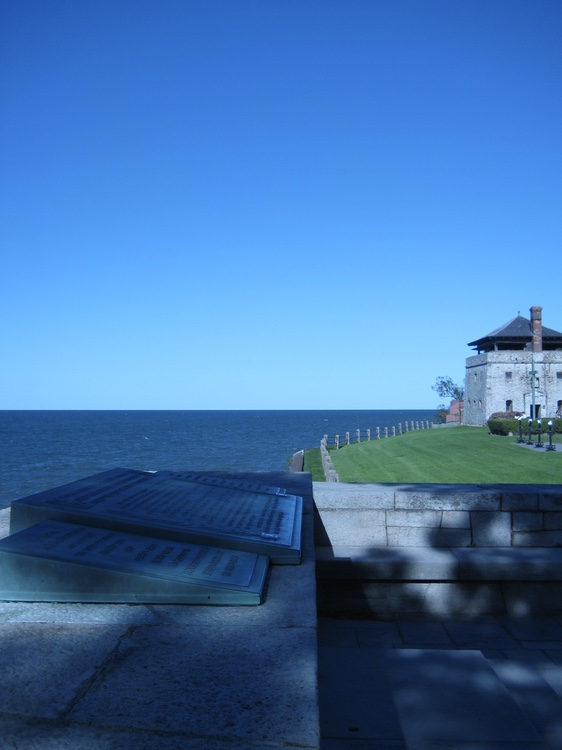How can solitude and intentional detachment from distractions help us cultivate creativity and find clarity in our choices?
Sweet, sublime, solitude. Flowers open in solitude. Butterflies emerge from their chrysalis in solitude. We find room for ourselves in solitude.
There is a silence at the center of each person — an untrammeled space where the inner voice grows free to speak. That space expands in solitude. To create anything — a poem, a painting, a theorem — is to find the voice in the silence that has something to say to the world. In solitude, we may begin to hear in the silence the song of our own lives.
~ Maria Popova, from 200 Years of Solitude
Before taking up meditation, I doubt I’d ever experienced solitude. Certainly I was exposed to solitude, but I never noticed it; I was never aware of it. Every moment was occupied by my thinking, doing, seeking, striving… And then at some point—after how many hours of meditation?—”Hello! What’s this experience?”
Some men are preoccupied even in their leisure. In a country house, upon a couch, in the midst of solitude, though they are inaccessible to others, they are troublesome to themselves; their life cannot be called leisurely but rather a busy idleness.
~ Seneca
About two weeks ago, long before dawn, I sat down, on the floor of a hotel room with typical hotel-room carpet. It was a few minutes of calm solitude before an arduous journey. Because I’ve intentionally cultivated the practice, that solitude was trivially easy to access. There were serious challenges immediately ahead, and those minutes of solitude were not just intentional, but were planned into that morning’s schedule.
Silence and solitude can seem out of reach to the average man — the exclusive purview of the kind of religious ascetics and hermetic philosophers just mentioned, or a luxury that can be indulged only by those leaders who face choices freighted with heavy meaning and high stakes.
~ Brett and Kate McKay, from The Spiritual Disciplines: Solitude and Silence
In truth, finding solitude and silence is possible even in the present age, without having to retreat to a cloister. And, far from being the privilege of the few, seeking these states is a responsibility of us all.
We’re now solidly into “heating season” here in Penn’s woodlands. Most mornings are now perfect for lighting a wood stove for heat. Staring into the growing fire is great. Basting one’s mind in solitude, in seated meditation, while staring into fire? Priceless.
What is this little, agile, precious fire, this fluttering motion which we call the mind?
~ Prior
I mean… what can anyone possibly write, to follow that thought? I’ll just turn left, from the righthand lane, without signaling…
Boredom is my teacher. I am as bored today as I ever was. Exhausted by the loops of conditioned thinking, I end up nowhere and there I feel happy and I have the urge to share my happiness by painting it. These days, all the unnecessary activities have been swept away, and I am left with my paintings. But I find that I do not work more than I used to, I do the amount of work necessary to say what I want to say.
~ Francesco Clemente, from Making Art Is to Time-Travel
Above I wrote, “about two weeks ago.” In addition to that wee bit of planned solitude, I’d also worked diligently to entirely clear two weeks of all responsibilities; I prepared—literally—two entire weeks where I could entirely detach from everyone and everything. It was a liberating exercise. I did much, deleted more and have a new perspective here, now, two weeks later.
I’m not bored, as Clemente seems to be. Rather I’m facing an immense number of my own creative ideas and am frankly at a loss for how to choose. For sure, there’s more of my life gone, than remains. I’m not just at a loss for how to choose, I’m no longer convinced that I should pursue any of my ideas! (We are after all human beings, not human “doings.”)
To create art we make choices. We do it with intent, seeking to make a change for certain people. When we find that our choices didn’t succeed, vulnerability with lots of personal angst is an available choice. The alternative is to learn from what didn’t resonate. Was it our choices in how we did the work, or did we bring this work to the wrong audience? You are not your work. Your work is a series of choices made with generous intent to cause something to happen. We can always learn to make better choices.
~ Seth Godin
I’ve tried that “angst” option. It just sours everyone’s milk. Also, as true, insightful, and generous as Godin’s quote is, I want to point out that there’s a third way therein which is not made explicit: We can choose to simply create. To simply be generous with our time, resources and energy. We can choose to simply make the world better by making better things.
Ray Bradbury had it all thought out. Behind his captivating works of science fiction, there were subtle theories about what literature was meant to do. The retro clip above takes you back to the 1970s and it shows Bradbury giving a rather intriguing take on the role of literature and art.
~ Dan Colman, from Ray Bradbury Explains Why Literature is the Safety Valve of Civilization)
I’m still not sure I should choose any idea to work on. But if I do, I will aim for that third way.
Until next time, thanks for reading.
ɕ
